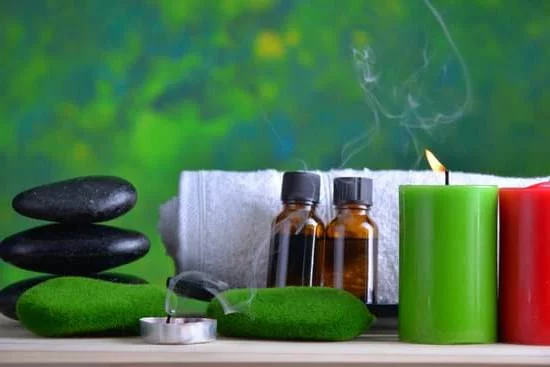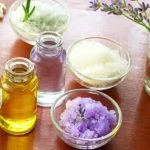Aromatherapy bath salts are a popular addition to self-care routines, offering a luxurious and therapeutic bathing experience. In this article, we will explore the benefits of using aromatherapy bath salts, the different types of bath salts and essential oils you can use, as well as provide DIY recipes for relaxation, stress relief, and invigoration. Additionally, we will share tips for customizing your bath salts and properly packaging and storing them for longevity.
Aromatherapy bath salts are a blend of minerals and essential oils designed to enhance the bathing experience while providing a range of physical and mental health benefits. Adding them to your bath water can help relax muscles, moisturize skin, improve circulation, relieve stress and anxiety, promote better sleep, and uplift mood. With the right combination of essential oils and other ingredients, you can create a customized blend that caters to your specific needs.
When it comes to creating your own aromatherapy bath salts, choosing the right essential oils is crucial. Each essential oil offers its own unique therapeutic properties and aroma that can complement the overall benefits of the bath salt blend. In the following sections, we will discuss in detail how different types of essential oils can be used for relaxation, stress relief, or invigoration when making your own aromatherapy bath salts.
Benefits of Using Aromatherapy Bath Salts
Aromatherapy bath salts have been used for centuries to promote relaxation, alleviate stress, and enhance overall well-being. These natural products are made from a combination of essential oils and mineral-rich salts, creating a luxurious and therapeutic bathing experience. There are numerous benefits to using aromatherapy bath salts, making them a popular choice for those seeking holistic self-care remedies.
One of the primary benefits of using aromatherapy bath salts is their ability to create a tranquil and soothing atmosphere during bath time. The combination of warm water, aromatic essential oils, and mineral salts can help to relax the body and calm the mind, making it an ideal way to unwind after a long day or week. Additionally, certain essential oils like lavender or chamomile have calming properties that can help improve sleep quality when used in bath salts.
Another benefit of using aromatherapy bath salts is their potential to alleviate muscle tension and soreness. The minerals found in bath salts can help to soothe tired muscles, reduce inflammation, and improve circulation when combined with warm water. When paired with essential oils like eucalyptus or peppermint, which contain analgesic properties, these bath salts can also provide relief from minor aches and pains.
In addition to promoting relaxation and muscle relief, aromatherapy bath salts can also enhance the skin’s health and appearance. The mineral content of the salts can help to exfoliate dead skin cells, cleanse pores, and improve overall skin texture. When infused with nourishing essential oils like rosehip or jojoba oil, these bath salts can also hydrate and moisturize the skin, leaving it feeling soft and rejuvenated after each use.
| Benefit | Description |
|---|---|
| Promotes Relaxation | The combination of warm water and aromatic essential oils creates a tranquil bathing experience that helps relax the body and calm the mind |
| Alleviates Muscle Tension | The minerals in bath salts soothe tired muscles while certain essential oils provide relief from minor aches and pains |
| Enhances Skin Health | Aromatherapy bath salts help exfoliate dead skin cells, cleanse pores, moisturize the skin when infused with nourishing essential oils |
Choosing the Right Essential Oils for Your Bath Salts
When making your own aromatherapy bath salts, choosing the right essential oils is crucial in achieving the desired therapeutic effects. Essential oils are natural plant extracts that have unique properties and scents, each offering different benefits for the mind and body. Whether you want to relax, uplift your mood, or relieve muscle tension, there is an essential oil that can cater to your specific needs.
Lavender essential oil is a popular choice for creating bath salts meant for relaxation and stress relief. Its calming scent can help soothe the mind and promote better sleep. On the other hand, citrus essential oils like lemon or orange are perfect for invigorating bath salts as they have uplifting and energizing properties. For those looking to ease muscle aches and pains, eucalyptus or peppermint essential oil can provide a cooling sensation and alleviate discomfort.
It’s important to consider personal preferences when choosing essential oils for your bath salts, as everyone’s response to different scents may vary. Additionally, some essential oils may cause skin irritation if not properly diluted, so it’s crucial to research their safety guidelines before use.
| Essential Oil | Therapeutic Benefit |
|---|---|
| Lavender | Relaxation and Stress Relief |
| Lemon or Orange | Uplifting and Energizing |
| Eucalyptus or Peppermint | Muscle Ache Relief |
Understanding the Different Types of Bath Salts and Their Properties
When it comes to making your own aromatherapy bath salts, it’s important to understand the different types of bath salts and their unique properties. Bath salts are not only a great way to relax and unwind, but they also offer various benefits for the body and mind. Here are the different types of bath salts you can use for your DIY aromatherapy creations:
- Epsom Salt: Epsom salt, also known as magnesium sulfate, is a popular choice for bath salts due to its ability to soothe sore muscles and reduce inflammation. It is particularly beneficial for those dealing with muscle tension or joint pain.
- Sea Salt: Sea salt is rich in minerals and can help detoxify the skin by drawing out impurities. It also has exfoliating properties, leaving your skin feeling smooth and rejuvenated after a bath.
- Himalayan Pink Salt: This type of salt is packed with minerals such as magnesium, potassium, and calcium. Himalayan pink salt is believed to promote relaxation, improve sleep quality, and support overall wellness.
In addition to these basic types of bath salts, you can also consider using specialty salts such as dead sea salt or dendritic salt in your aromatherapy creations. Each type of salt offers its own set of benefits for the body, making them versatile options for customizing your bath salt recipes.
When creating your own aromatherapy bath salts, it’s important to choose the right type of salt based on your desired outcome. Whether you’re looking to relax, detoxify, or invigorate, understanding the properties of different bath salts will help you tailor your recipes to meet your specific self-care needs.
DIY Aromatherapy Bath Salt Recipes for Relaxation, Stress Relief, and Invigoration
Aromatherapy bath salts are a simple and effective way to enhance your bathing experience and promote relaxation, stress relief, and invigoration. By creating your own DIY aromatherapy bath salt recipes, you can customize the scents and properties to suit your preferences and needs. In this section, we will explore how to make your own aromatherapy bath salts at home using a few simple ingredients.
To make your own aromatherapy bath salts, you will need some basic supplies including Epsom salt or sea salt, baking soda, and essential oils. Epsom salt is known for its ability to soothe sore muscles and reduce inflammation, making it an excellent base for bath salts. Baking soda helps to soften the water and cleanse the skin. The essential oils are where you can get creative and tailor the scent of your bath salts to your liking.
One popular recipe for relaxation is combining 1 cup of Epsom salt, 1/2 cup of baking soda, and 10-15 drops of lavender essential oil. Lavender has calming properties that can help ease stress and promote relaxation. For stress relief, consider mixing 1 cup of sea salt with 1/2 cup of Epsom salt, 1/4 cup of baking soda, and 10-15 drops of eucalyptus essential oil.
Eucalyptus is known for its ability to clear the mind and reduce tension. If you’re in need of an energy boost, try blending 1 cup of Epsom salt with 1/2 cup of sea salt, 1/4 cup of baking soda, and 10-15 drops of citrus essential oil such as lemon or grapefruit.
Experiment with different combinations of essential oils until you find the perfect blend for your desired effect. With a few simple steps, you can create personalized aromatherapy bath salts that are tailored to your specific needs.
Tips for Customizing Your Aromatherapy Bath Salts to Your Preferences
When it comes to creating your own aromatherapy bath salts, customization is key to making the experience truly personalized and enjoyable. There are several ways to tailor your bath salts to cater to your specific preferences, whether it be scent, texture, or therapeutic properties. Here are some tips for customizing your aromatherapy bath salts:
1. Choose your desired essential oils: The essential oils you choose will heavily influence the scent and therapeutic benefits of your bath salts. Whether you’re looking for relaxation, stress relief, or invigoration, there are a variety of essential oils to choose from. Lavender and chamomile for relaxation, eucalyptus and peppermint for stress relief, and citrus oils like lemon and orange for invigoration.
2. Consider the texture: Depending on personal preference, you can customize the texture of your bath salts by adding different types of salt or even dried flowers or herbs. Epsom salt provides a fine texture that dissolves easily in water, while Himalayan salt adds a coarser texture and adds additional minerals to the bath.
3. Add extra ingredients: To further customize your aromatherapy bath salts, consider adding extra ingredients such as dried herbs, oatmeal, or even powdered milk for added nourishment and skin benefits.
By following these tips for customizing your aromatherapy bath salts according to your preferences and needs, you can create a luxurious bathing experience tailored specifically to you.
Packaging and Storing Your Aromatherapy Bath Salts for Longevity and Use
When it comes to packaging and storing your homemade aromatherapy bath salts, there are a few key considerations to keep in mind. Proper storage and packaging will not only ensure the longevity of your bath salts but also maintain their effectiveness and fragrance.
Choosing the Right Packaging
The first step in packaging your aromatherapy bath salts is selecting the right containers. It’s best to use airtight glass or plastic containers to preserve the potency of the essential oils and prevent moisture from affecting the salts. You can also get creative with your packaging by using decorative jars or bottles to make the bath salts visually appealing.
Storing Your Aromatherapy Bath Salts
Once you have packaged your bath salts, it’s important to store them in a cool, dry place away from direct sunlight. Exposure to light and heat can cause the essential oils in the bath salts to degrade, reducing their effectiveness. Keep your bath salts in a cupboard or drawer where they won’t be exposed to extreme temperature fluctuations.
Prolonging Longevity
To extend the shelf life of your aromatherapy bath salts, consider adding a small desiccant packet to absorb any excess moisture that may affect the quality of the salts. Additionally, labeling each container with the date of creation and ingredients used will help you keep track of their freshness and ensure that you use them within a reasonable timeframe.
By following these simple tips for packaging and storing your aromatherapy bath salts, you can enjoy their benefits for longer while maintaining their quality and effectiveness. With proper care and attention, your homemade bath salts will continue to enhance your self-care routine for months to come.
Conclusion
In conclusion, incorporating aromatherapy bath salts into your self-care routine can provide a multitude of benefits for both your physical and mental well-being. With the ability to customize your own bath salts using a variety of essential oils and different types of salts, you have the opportunity to create a truly personalized and luxurious experience that caters to your specific needs.
By understanding the different properties of various types of bath salts and essential oils, you can tailor your aromatherapy bath salts to promote relaxation, stress relief, or invigoration, depending on what you require. Whether you prefer a calming lavender scent for winding down after a long day or an energizing citrus blend for a morning boost, there are endless possibilities for creating your own signature bath salt blend.
Additionally, learning how to make your own aromatherapy bath salts allows you to take control of the ingredients used, ensuring that they are natural and free from any potentially harmful additives. With simple tips for packaging and storing your homemade bath salts properly, you can extend their longevity and continue to enjoy their therapeutic effects over time.
Now is the time to immerse yourself in the world of aromatherapy and elevate your self-care routine with the indulgent experience of custom-made bath salts tailored to your unique desires.
Frequently Asked Questions
How Do You Make Aromatherapy Bath Salts?
Aromatherapy bath salts can be made by combining Epsom salt, sea salt, baking soda, and essential oils. The salts can then be mixed with the oils and left to dry before being used in the bath.
Is It Cheaper to Make Your Own Bath Salts?
Making your own bath salts can be cost-effective compared to buying them from a store. It allows you to customize the scent and ingredients to your preference, potentially saving money in the long run.
What Essential Oil Is Best for Bath Salts?
The best essential oil for bath salts depends on personal preferences and desired effects. Lavender oil is popular for relaxation, while eucalyptus oil is invigorating. Experimenting with different oils can help find the perfect combination for your needs.

Are you looking for a natural way to improve your health and wellbeing?
If so, aromatherapy may be the answer for you.





